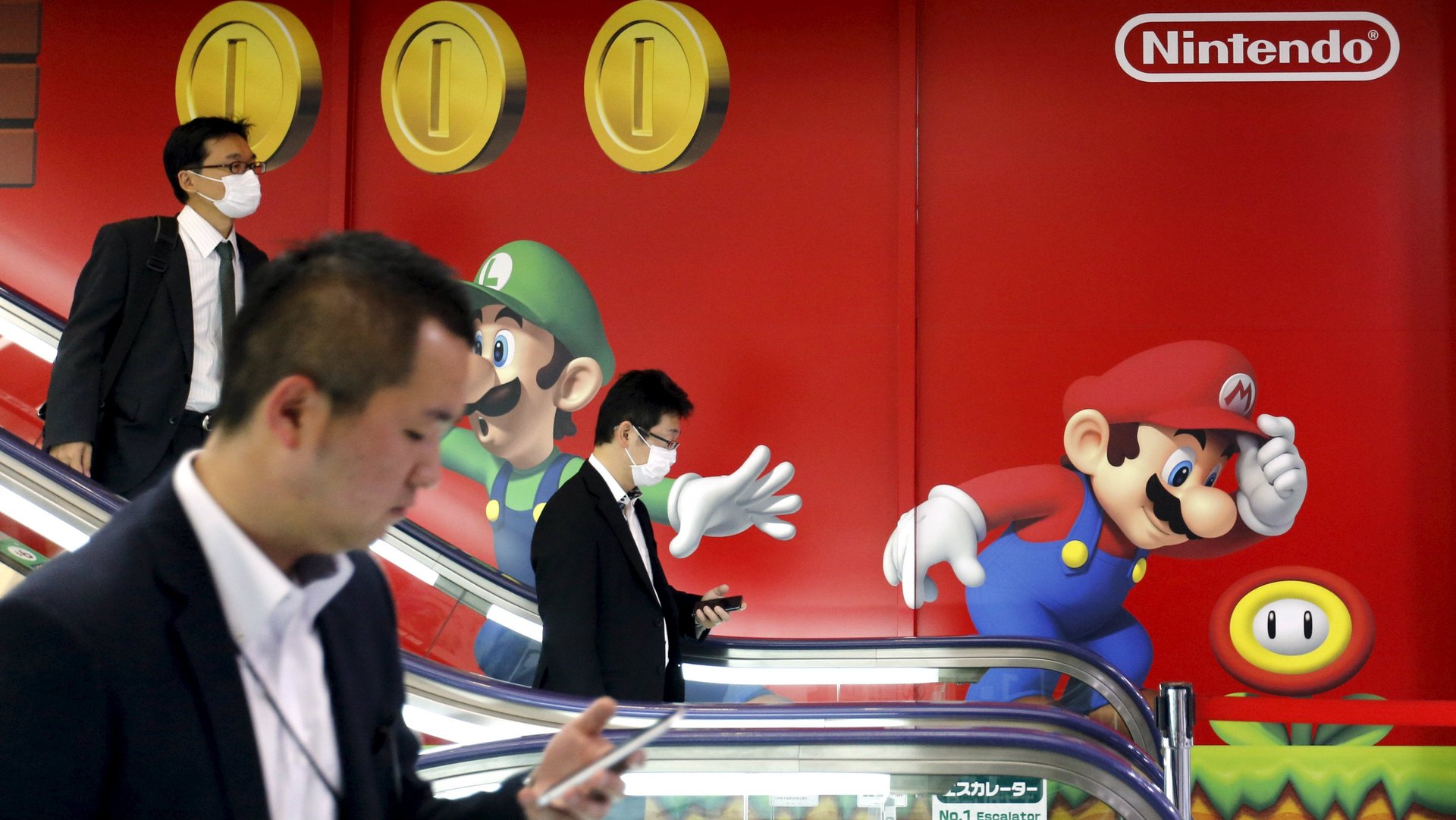Nintendo and Sony’s smartphone game conundrum, charted
Nintendo and Sony were once gaming industry giants. Now they’re underdogs.


Nintendo and Sony were once gaming industry giants. Now they’re underdogs.
A week ago, Nintendo broke with tradition and released its first-ever game for iPhone and Android smartphones. In Miitomo, a user can create a character and assume its identity in a virtual world, chatting and play games with other characters, created by friends and strangers.
The concept resembles games like The Sims or Second Life or Nintendo’s own Tomodachi Life, which Miitomo is partially based on.
Like most mobile games, Miitomo is free to download. But users can opt to pay for outfits, games, and other bonus features.
While its premise might not seem distinctive on paper, Miitomo is already a hit in Japan. The game surpassed 1 million downloads two days after it hit the App Store and Google Play.
Nintendo’s investors are ecstatic. The company’s stock price has soared, jumping 8% since its launch on Mar. 17.
The game’s global rollout has yet to be announced, but is expected to come later this month.
Sony, meanwhile, revealed today (March 24) that it too will start making mobile games. A new division called ForwardWorks will take software titles and intellectual property from its Playstation games and bring them to smartphone owners in Asia. The company will start in Asia only, though it’s possible the rest of the world might come next.
“The mobile market has grown in size to rival that for traditional game machines,” Sony spokesman Masaki Tsukakoshi told Bloomberg. “We are looking to create an opportunity for more users to easily try fully-fledged game titles that emphasize playability.”
Sony and Nintendo’s move onto mobile may not rattle the larger games industry much. In fact, it’s arguably too late for them to make a big impact.
The games industry has endured seismic shifts from the emergence of smartphones. Thanks to the App Store and Google play, consumers can download a plethora of games—often completely for free—and play them on the bus, at work, or on their couch. People that might normally scratch their gaming itch by purchasing a $400 console no longer have to do so.
In turn, the mobile games industry has boomed. In 2015, for the first time, revenues from smartphone games surpassed those from console games.
Nintendo has been hit the hardest by this trend. With the Xbox and Playstation, Microsoft and Sony have traditionally invested in titles that appeal to hardcore hobbyist gamers. Nintendo, on the other hand, has long prided itself on making accessible, family-friendly games that appeal to a wide audience.
But this is precisely the audience that’s most likely to lose interest in consoles and get their gaming fix through Candy Crush, Clash of the Clans, or another game that’s easy to master and frighteningly addictive. For this reason, sales of its latest machine, the Wii U, have trailed its competitors—despite hitting the shelves one year before both.
Nintendo’s revenues have been going nowhere but down. It’s now raking in about a third of what it generated five years ago.
Unlike Sony’s Playstation division and Microsoft’s Xbox unit, Nintendo is not part of a larger company comprised of several business units. All of its chips are on console gaming. During its 2015 fiscal year (link to .pdf), it derived 53% of its revenue from hardware sales, and 46% from game sales.
With no cushion to fall back on, investors have lost faith in the company. Its stock price has sunk 58% since its April 2010, from $349 per share to $146.
Miitomo’s launch on smartphones is the company’s attempt to save itself. Rather than remaining a dying icon of a stagnating industry, it’s hoping to transfer its decades of experience making memorable, iconic games into a a new era.
Sony, meanwhile, is in a stronger position than Nintendo. Its gaming division is one its few stable businesses amidst a handful of other units that are suffering from flagging sales. But the company is increasingly reliant on Playstation to stay afloat. In 2015, gaming generated almost 17% of Sony’s total revenues, compared to 11% two years before that.
To ignore the growing mobile games segment and concentrate solely on the stagnating console industry would be foolish for Sony—and its investors would be livid.
Cracking the mobile games industry will be challenging for both companies. With so many titles to choose from, creating a hit is hard enough—making a second and third one is even harder. Upstarts such as King, the maker of Candy Crush Saga, and Zynga, the maker of Farmville and Words With Friends, each completed IPOs on the heels of a hot app. But they quickly saw their stock price slide when players moved on to a different game from a different studio. Even if Miitomo’s success is short-lived, Nintendo should be pleased it got even this far.